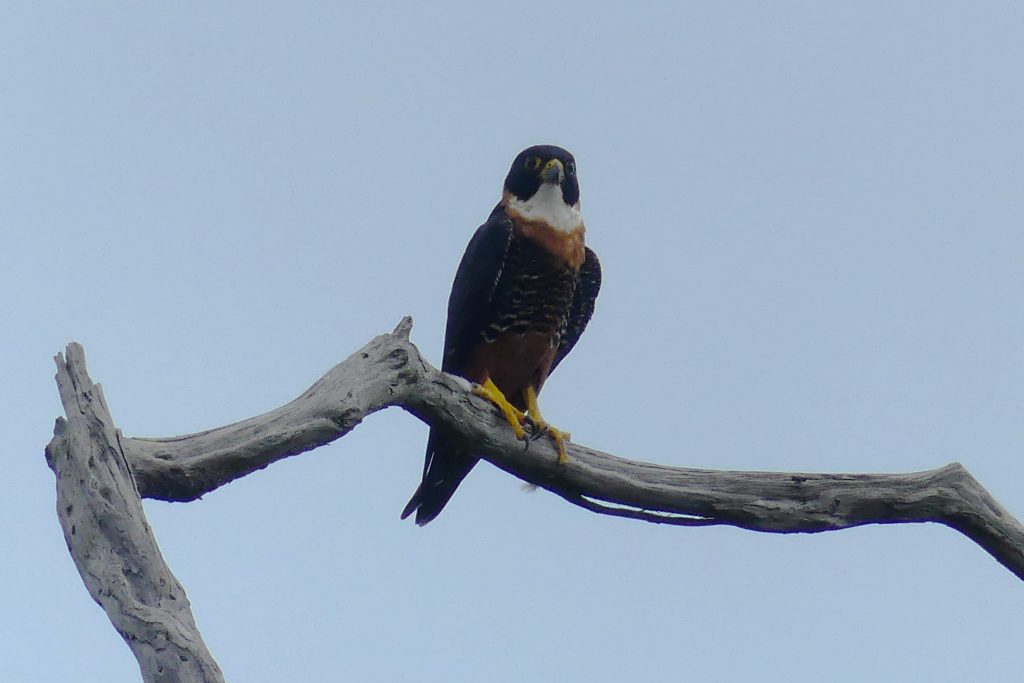-By: Peter Hall
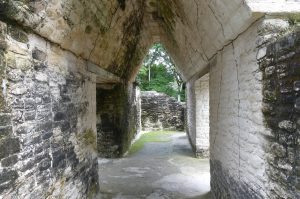
Tucked away in a corner of Central America is the tiny nation of Belize. Largely covered by tropical rainforest and ridges of pine trees, it harbors a natural diversity second to none for its size. It also has the second-longest coral reef in the world and a vibrant people with ancestries as divergent as Mayan in the highlands and African-Caribbean along the coast. There are also scattered Mennonite settlements in the interior. A former British colony, the official language is English.
With the rainy season tailing off in early December, My wife, Judy and I headed for this heavily wooded country for a few weeks to escape from the impending winter in Toronto. High on our hoped for natural sightings were the many regionally endemic and rare birds and butterflies. We had chosen two of the many eco-lodges that now form the core of Belize’s tourist facilities.
At the town of St. Ignacio near the Gu atemalan border, the Macal River runs north-south cutting through the rainforest. The small number of cabanas at the Table Rock Jungle Lodge south of the town sit above a bend in the river surrounded by jungle and an organic farm. On the first day, the fruit trees of the farm attracted a large number of large Nymphalid butterfly species, with four species of crackers and an equal number of blue prepona species madly chasing each other about the trees. They were joined by huge Pale Owl-Butterflies, and a large number of Bromfild’s Beauties. Throughout the day, other butterflies joined in with occasional Common Morphos and several cattleheart swallowtails, and a variety of smaller skippers, sulphurs, metalmarks and adelphas flying up from the patches of beggartick flowers.
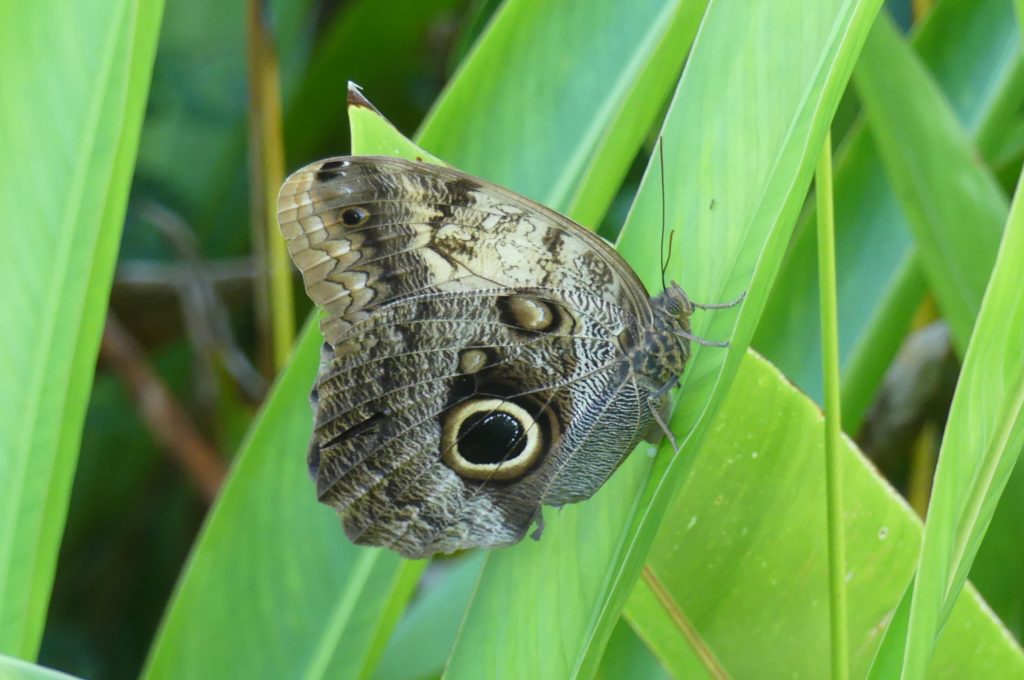
The lodge also took visitors out on guided tours of nearby Mayan ruins, birding tours, river canoe trips, coffee plantation visits and other highlights all of which produced their share of new butterflies. Over the rest of the first week at the lodge, a total of about 70 species were sighted and most photographed. Added to the sight-seeing was a first-class kitchen with Mayan cooks turning out splendid local dishes. And musn’t forget to mention the morning smell of coffee grown and roasted on the lodge grounds.
In the second week, we headed up to the Pine Ridge Forest Reserve with the Hidden Valley Wilderness Lodge tucked into the vast protected area. We expected a new array of butterflies and birds and were not disappointed. The many trails on the lodge grounds produced our first hairstreaks with the gorgeous Zebra-striped Hairstreak topping the list. Many new, large White and Sulphur species began to appear and on the first day a Guatemalan Patch appeared on the top of a lookout with a spectacular view and a very rare Orange-breasted Falcon sitting in a dead tree watching us eat lunch.
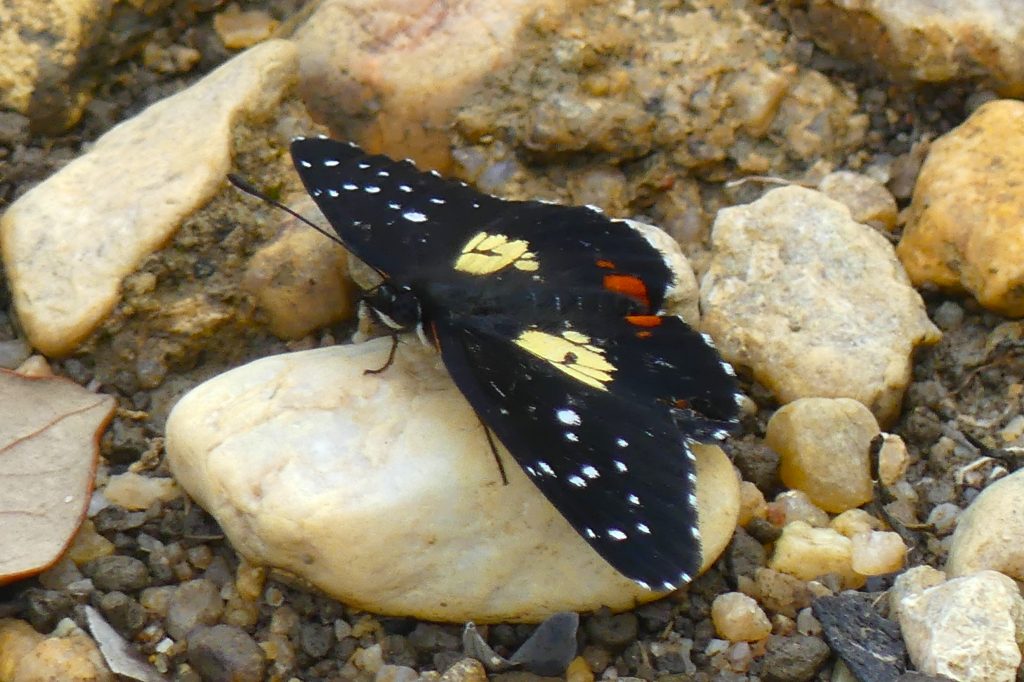
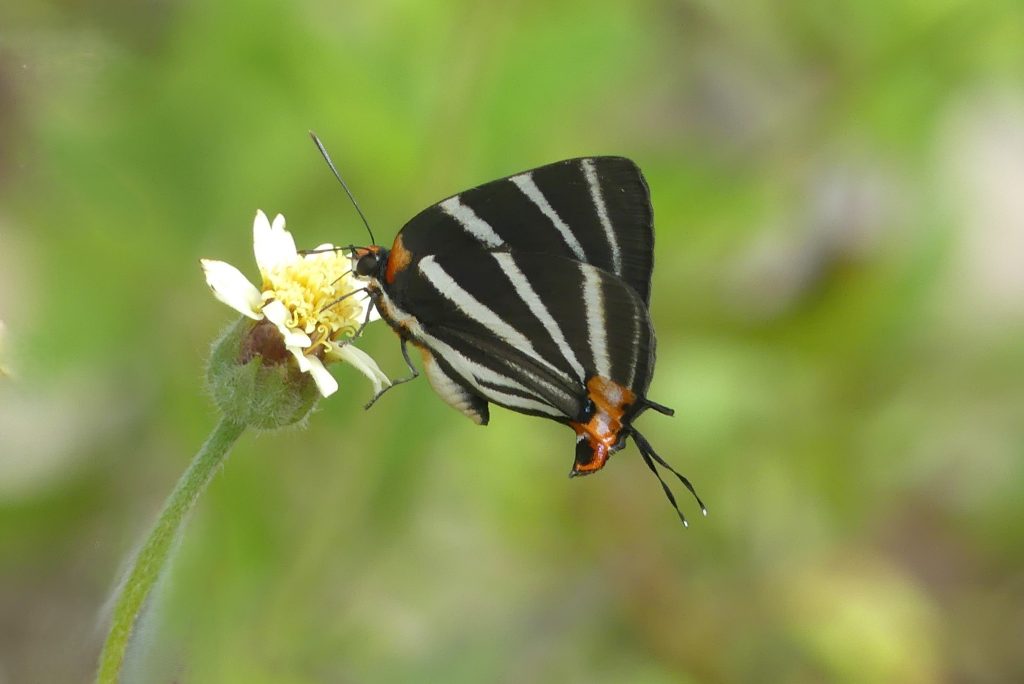
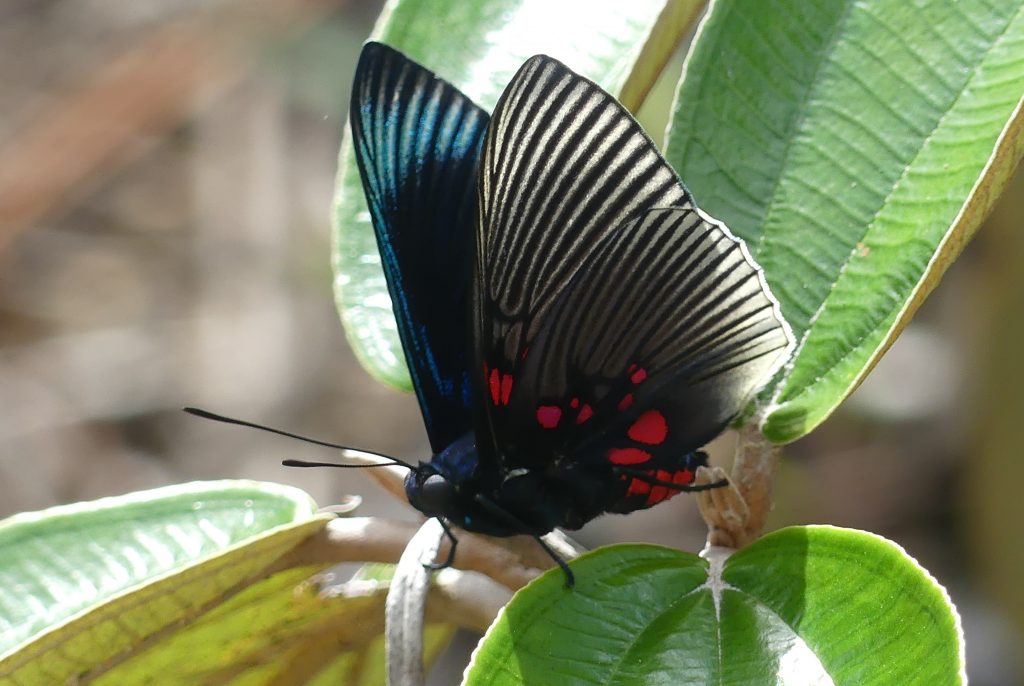
In adding up species seen on the visit, a total of 118 butterfly species were observed and photographed. As well, 123 bird species were sighted along with a variety of mammals and other amazing invertebrates.
All butterfly sightings have now been entered into eButterfly and you can see them by clicking here
